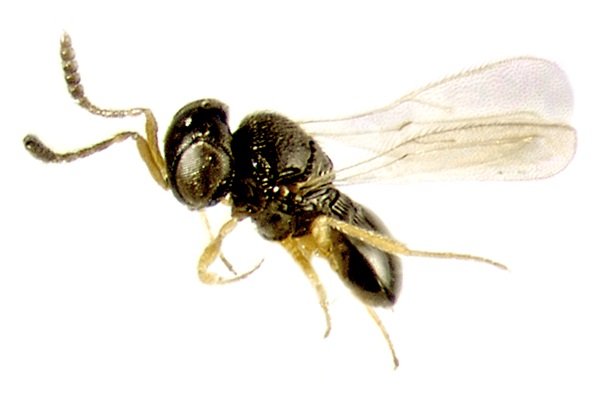- Share this article
- Subscribe to our newsletter
Biological control of Fall Armyworm
The egg parasitoid Telenomus remus could prove an important biological weapon in the fight against the devastating Fall Armyworm in Africa, announced scientists from CAB International (CABI) in April 2019. Fall armyworm is a pest originating from the Americas, whose presence on the African continent was first reported in Sao Tome and Principe around January 2016.
Telenomus remus is the main egg parasitoid of Fall Armyworm in the Americas, where it is already used in augmentative biological control programmes. In Latin America, field releases of Telenomus remus in maize can result in 80-100 per cent parasitism, providing full control of fall armyworm, according to the scientists.
Now, they confirmed the presence of Telenomus remus in Benin, Côte d’Ivoire, Kenya, Niger and South Africa, providing a great opportunity to develop augmentative biological control methods and register the parasitoid against Fall Armyworm. Further surveys should be carried out throughout Africa to assess the present distribution and impact of Telenomus remus on the continent.
The scientists state that they are not aware of how and when Telenomus remus arrived in Africa, but are confident that it arrived before the fall armyworm as a specimen was collected in Kenya in 1988. They argue that Telenomus remus could have remained unnoticed on other hosts for a long time.
Preferring biological control options
According to scientists, Telenomus remus could be a vital tool within an Integrated Pest Management strategy for fall armyworm which – from preliminary estimates in 12 of Africa’s maize-producing countries – has the ability to cause yield losses of up to 20.6 million tonnes per annum.
Augmentative biological control options using the parasitoid should be considered, the scientists suggest, and call for classical biological control which should focus on the importation of larval parasitoids from the Americas. They point out that biological controls can offer an economically and environmentally safer alternative to synthetic insecticides currently being used for management of the fall armyworm.
The main challenge for a wider utilisation of Telenomus remus to fight Fall Armyworm is to provide a product that is financially affordable for African farmers, the scientists say. Mass production on its natural hosts is costly but rearing systems on factitious hosts can be developed.
(CABI/ile)
More information:
Telenomus remus, a Candidate Parasitoid for the Biological Control of Spodoptera frugiperda in Africa, is already Present on the Continent





Add a comment
Be the First to Comment